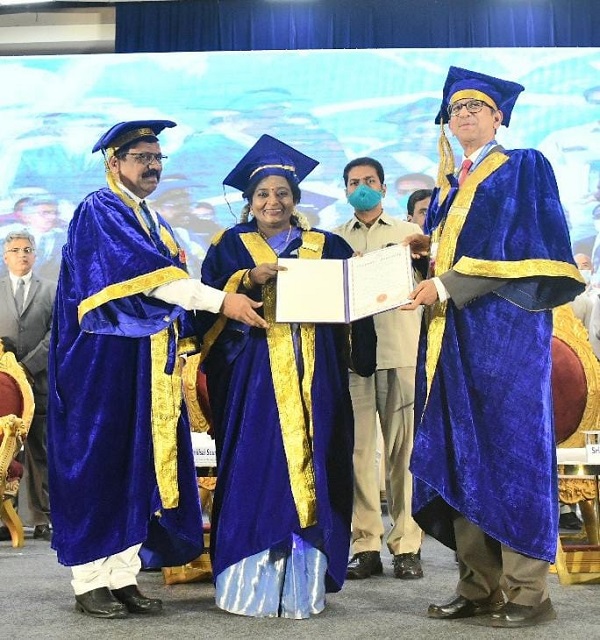Hyderabad, (Asian independent) Chief Justice of India N.V. Ramana said on Friday that global culture is emerging as a threat to local culture, symbols, and identities.
In his address at the 82nd convocation of Osmania University here, he noted that driven by the winds of globalisation, people are moving towards global culture and as this engulfs the world, the need of sustaining diversity assumes greater significance.
“The social media, television and pop culture glamourised a particular way of life and sadly, we are blindly aping the same. Instead of celebrating our distinct heritage and culture, we are allowing our rich identities to be blurred,” he said.
The CJI pointed out that with rapid globalisation and massive developments in science and technology, several cultures and identities are interacting with each other with increased frequency.
He said while his observations should not be taken as criticism of globalisation per se, the prevalent issues definitely prove that something has gone wrong with the present model of globalisation.
“Although we have made significant achievements, our societies are becoming increasingly divided over access to wealth and resources,” he observed.
Quoting the 2021 UNESCO World Report of Languages, the Chief Justice said half of the approximately 7,000 languages spoken in the world today could disappear by the end of the century and with loss of each language, people are not only losing considerable literature and folklore, but also losing wisdom inherited through generations.
He also noted that globalisation also significantly impacted genetic diversity. “We are witnessing rapid loss of crop varieties, wild species and indigenous livestock,” he said.
As the market is driven by demands of the global economy, more and more farmers are moving beyond indigenous crops for short-term gains and this change in cropping pattern is altering the character of soils, thereby reducing its capacity to support biodiversity.
Similarly, climate change and environmental pollution are also affecting the wild varieties resulting in a huge ecological imbalance, he said.
He pointed out that another aspect of globalisation is its impact on local handicrafts and artisans. “With global brands flooding the markets, with mass produced designs and products, the local artisans are pushed to the corner,” he said.
He called for all institutions to introduce a subject on the basic ideas about the Constitution and governance, irrespective of the stream of learning. He observed that there is a need for simplifying the ideas of the Constitution for everyone’s understanding and empowerment
The CJI believes true education is what nurtures true impulses and independent thinking. He advised the youth to dive deep and bring transformation from within instead of being prisoners of status quo.
Chief Justice Ramana, who was conferred Honoris Causa doctorate by Osmania University, recalled his memories with the varsity during his student days though he did not study in the institution.
“Initially in my student days, I aspired to join law at Osmania University. Although I could not join law formally, I stayed here with friends in hostel rooms and attended many classes in law and linguistics. I have a lot of warm memories of Osmania University,” he said.
He said Osmania University is one of those institutions where political participation and scholarly pursuits went hand-in-hand and it has produced one of the most remarkable Prime Ministers and statesmen of modern India in the form of P.V. Narasimha Rao.
He said the university contributed to fine governance by producing many Chief Ministers and cabinet ministers including incumbent Chief Minister K. Chandrasekhar Rao.
Telangana Governor Tamilisai Soundararajan and Osmania University Vice Chancellor Professor D. Ravinder also spoke.
A total of 55 gold medals and 260 doctoral degrees were awarded at the convocation.








